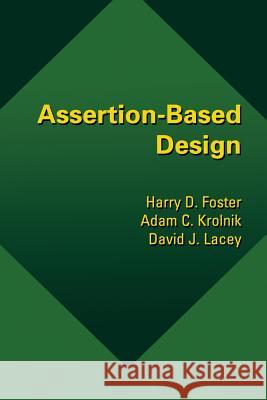Assertion-Based Design » książka
Assertion-Based Design
ISBN-13: 9781461348481 / Angielski / Miękka / 2012 / 363 str.
There is much excitement in the design and verification community about assertion-based design. The question is, who should study assertion-based design? The emphatic answer is, both design and verification engineers. What may be unintuitive to many design engineers is that adding assertions to RTL code will actually reduce design time, while better documenting design intent. Every design engineer should read this book Design engineers that add assertions to their design will not only reduce the time needed to complete a design, they will also reduce the number of interruptions from verification engineers to answer questions about design intent and to address verification suite mistakes. With design assertions in place, the majority of the interruptions from verification engineers will be related to actual design problems and the error feedback provided will be more useful to help identify design flaws. A design engineer who does not add assertions to the RTL code will spend more time with verification engineers explaining the design functionality and intended interface requirements, knowledge that is needed by the verification engineer to complete the job of testing the design.











